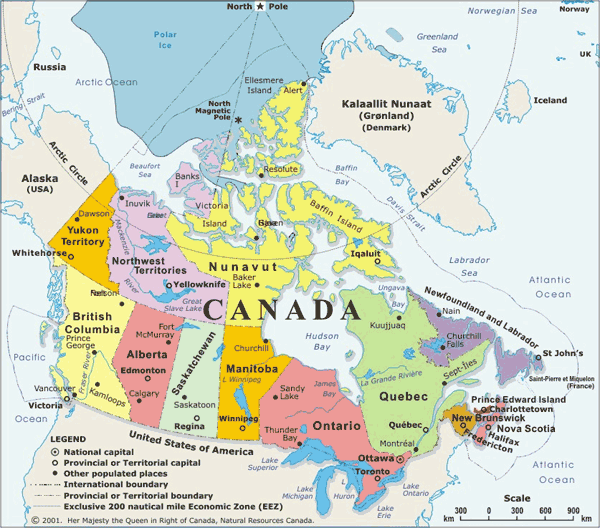Canada

Students wishing to study abroad often choose Canadian universities. Moreover offering excellent language programs and affordable tuitions, study in Canada opens doors for international students beyond college as well. Canada has some of the highest academic standards in the world and is a global leader in scientific research, engineering, medicine, business and many other vocational choices available to students.
Although often overlooked in favor of its neighbor to the south and the UK, Canada nevertheless remains a popular destination for students planning on studying internationally—and for good reason! Canada has ranked as one of the top ten places to live in the world for over twenty years, and the education system in Canada is among the best.
In fact, Canada is an increasingly popular option for students who want the quality of a North American education at a less expensive cost than they might find in the US. Canadian universities bear more similarity to UK universities than they do to schools in the US.

QUALITY EDUCATION
One of the biggest reasons students choose to come to Canada is the quality of a Canadian education. A Canadian degree is widely recognized as equal to one from the United States, Australia, or the United Kingdom, and Canadian universities consistently do well in international rankings. There’s a wide array of Canadian institutions to choose from, but whether you attend a university, college, or vocational school, there’s no doubt that a Canadian education is world-class.
WORK & STUDY
Even though Canada is a relatively affordable option, there’s no doubt that studying abroad is expensive. Luckily, international students in Canada are eligible to work up to 20 hours per week during school terms and full-time (30 hours/week) during scheduled breaks like summer vacation. Most students don’t need a work permit to work while they study, whether their job is on campus or off campus. Your study permit will indicate whether you’re allowed to work off campus.
Canada is one of the largest economies in the world, so there are a lot of working opportunities for graduates. As a student, you have the opportunity to network with leaders in your field. While you study, or after you graduate, you can gain experience working for industry leading companies in Canada.
If you choose to return to your home country, your Canadian education, and improved language ability in either English or French, could help open doors to working in international companies. Canadian work experience and education are highly valued everywhere in the world, so they could also increase your chances of receiving a job offer from employers all over the world.
IMMIGRATION
When you travel abroad to study, you usually get temporary status in the country you’re studying in. That status usually expires when your program ends, so you have to return home when you graduate.
Canada has a lot of programs designed to encourage international students to transition to permanent residence after their studies. Options like the Post-Graduation Work Permit let graduates stay and work on an open work permit after graduation and give them an opportunity to get some Canadian work experience. Most Canadian provinces have Provincial Nominee streams for applicants with experience studying or working in the province, and Canada’s federal economic immigration streams offer additional points for Canadian work and study experience.
If you choose to stay in Canada, Canadian employers tend to prefer Canadian work experience over work experience from elsewhere in the world, so your student and work experience could increase your chances of receiving a job offer!



